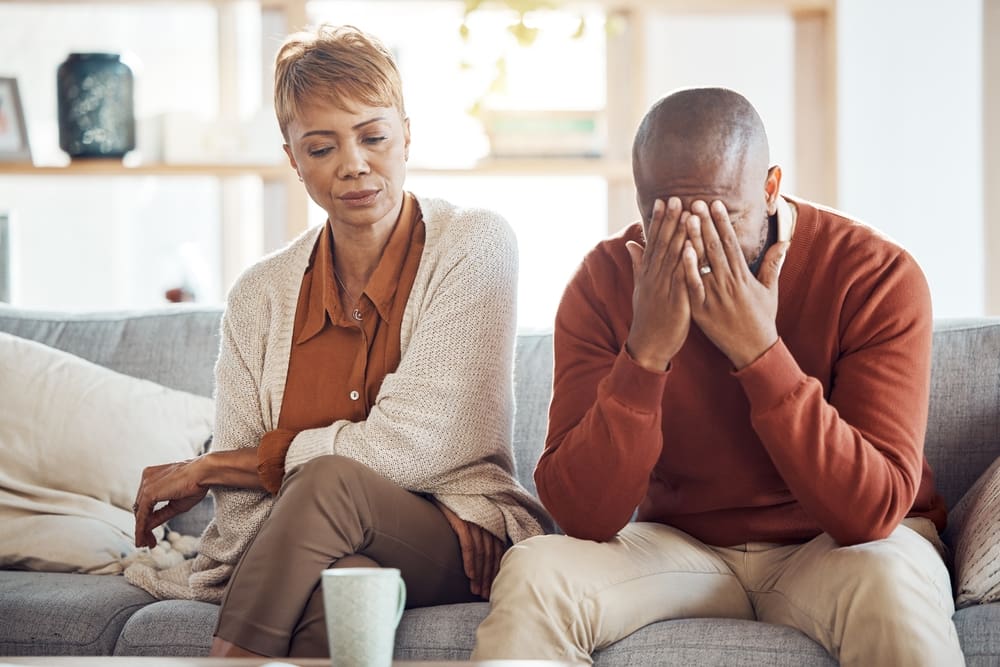In the intricate dance of relationships, the prospect of couples therapy emerges as a potentially transformative and healing experience. Yet, a palpable hesitancy often lingers, a reluctance that can be particularly pronounced among men. This article delves into the nuanced reasons behind the apprehension that some individuals, notably husbands, may harbor when contemplating couples therapy with their wives. Unraveling the threads of societal expectations, personal insecurities, and the fear of vulnerability, we aim to illuminate the factors contributing to this hesitation. Beyond mere exploration, our focus is on providing constructive insights into addressing these concerns. By navigating the intricate terrain of emotions and communication, we seek to guide couples toward a more profound understanding of the benefits and, ultimately, the transformative potential of embarking on this shared therapeutic journey.
The initial hesitation: A common thread
At the onset of exploring couples therapy, the resistance often stems from a blend of societal expectations, personal insecurities, and the fear of vulnerability. The notion of airing personal and relationship issues in front of a stranger can be intimidating, and some individuals may fear judgment or perceive therapy as a sign of failure.
The burden of societal expectations
One contributing factor to this hesitation is the societal expectation that men should be stoic and self-reliant. Admitting the need for therapeutic intervention may be perceived as a deviation from this ingrained cultural script. Men might fear being labeled as weak or incapable, which adds a layer of complexity to seeking help for relationship challenges.
Fear of the unknown
Entering therapy is akin to stepping into uncharted territory. Many individuals, irrespective of gender, fear the unknown. The uncertainty of what might unfold during therapy sessions can be anxiety-inducing. This fear can be mitigated by normalizing the counseling process, emphasizing its confidentiality, and discussing the potential benefits openly.
Overcoming the hurdles: A gentle approach
1. Normalize the Idea of Therapy:
Begin by normalizing the concept of therapy as a tool for growth rather than a last resort for troubled relationships. Emphasize that attending therapy doesn’t equate to failure but rather signifies a commitment to fostering a healthier and more fulfilling relationship.
2. Communication is Key:
Encourage open and honest communication between partners. Create a safe space where both individuals feel heard and validated. By fostering a sense of mutual understanding, you can address concerns collaboratively and reinforce that therapy is a shared journey.
3. Educate on Therapy Benefits:
Share information on the positive outcomes of couples therapy, such as improved communication, strengthened emotional bonds, and the development of effective conflict resolution skills. Highlighting success stories can help dispel apprehensions.
4. Choose the Right Therapist:
Selecting a therapist is a critical decision. Involve both partners in the process, ensuring that they feel comfortable with the chosen professional. A good therapist will create a non-judgmental and empathetic environment, easing the apprehensions associated with seeking help.
5. Celebrate Vulnerability:
Emphasize that vulnerability is not a weakness but a courageous act that can deepen emotional intimacy. Highlighting that both partners will be navigating this journey together can alleviate individual fears.
Overcoming the reluctance to engage in couples therapy requires a concerted effort to challenge and dismantle ingrained societal expectations. By recognizing that seeking therapeutic support is not a sign of weakness but a courageous step toward growth, individuals can reshape their perspectives. Central to this transformation is the cultivation of open communication, providing a safe space for partners to express their concerns, fears, and aspirations without judgment.
Crucially, the journey into couples therapy is a joint endeavor, demanding a shared commitment to vulnerability and self-discovery. Viewing therapy as a collaborative effort empowers couples to confront challenges together, fostering resilience and deepening emotional bonds. In this embrace of vulnerability, couples can not only navigate their existing hurdles but embark on a profound journey of self-awareness and relationship enrichment that extends far beyond the therapeutic space. Ultimately, couples therapy becomes a catalyst for enduring connection and a testament to the strength found in shared growth.
This story was created using AI technology.













